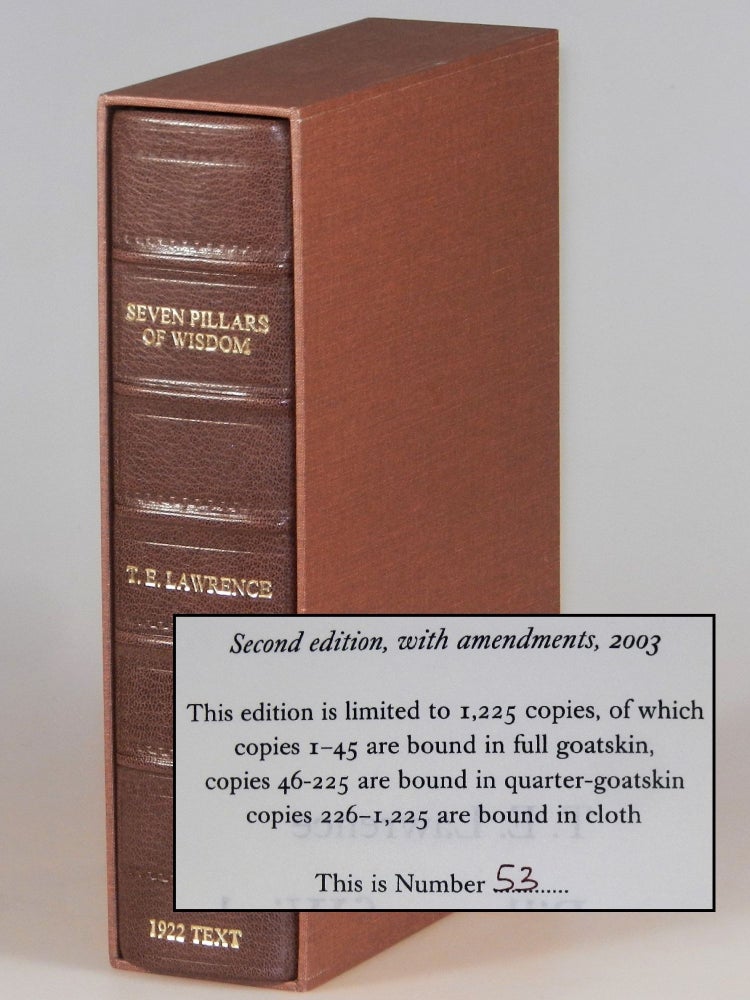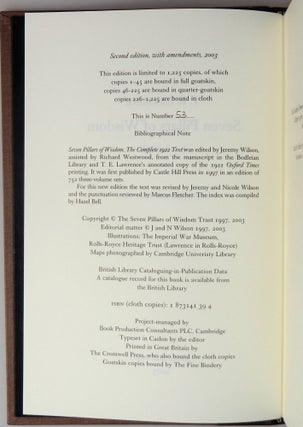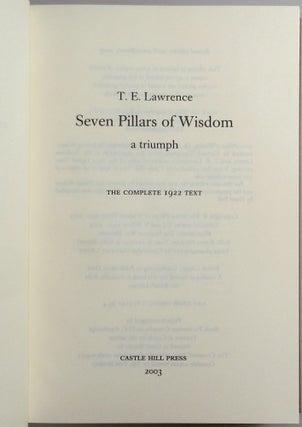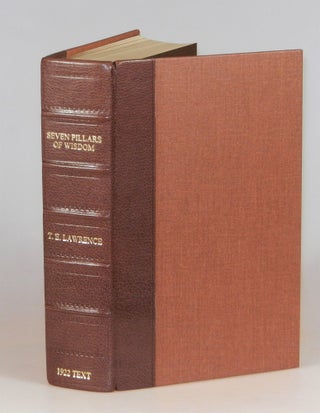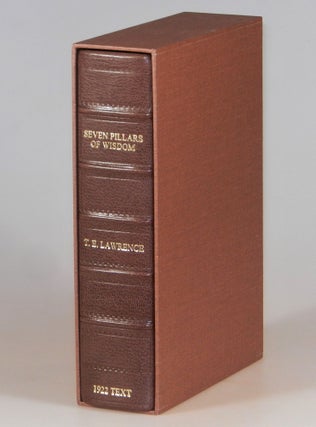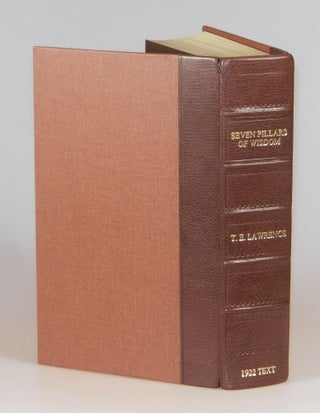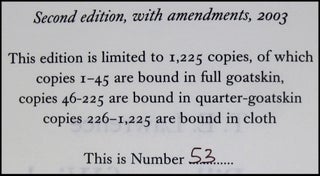Seven Pillars of Wisdom: a triumph, the complete 1922 'Oxford' text, first and limited one-volume edition, one of 180 copies issued thus in quarter Nigerian goatskin
Salisbury, England: Castle Hill Press, 2003. Quarter goatskin. This is the finely bound, first one-volume limited edition of the full 1922 'Oxford' text from Castle Hill Press, the premier editors and fine press publishers of material by and about T. E. Lawrence, founded by Lawrence’s official biographer, Jeremy Wilson (1944-2017). Of 1,225 total copies, the publisher issued just 180 thus, in quarter Nigerian goatskin, bound by The Fine Bindery and featuring raised spine bands, blind rule compartments and transitions, cloth sides, top edge gilt, ribbon place marker, brown endpapers with adjacent illustrated maps, and head and tail bands and issued in a rigid, cloth slipcase. Quarter goatskin copies were numbered 46-225. This copy is hand-numbered "53" by the publisher on the title page verso limitation. We acquired this copy in flawless, as-new condition directly from Castle Hill Press.
This beautiful first one-volume edition features text that was “re-checked against copies of the two source documents” leading to “a number of small improvements from the preceding 1997 edition." This edition also added a scholarly index by Hazel K. Bell (which won the Weatley Medal, Britain’s major indexing award), as well as 16 pages of black-and-white photographs taken by Lawrence and others during the Arab Revolt.
Seven Pillars is the story of Thomas Edward Lawrence's (1888-1935) remarkable odyssey as instigator, organizer, hero, and tragic figure of the Arab revolt against the Ottoman Empire during the First World War, which he began as an eccentric junior intelligence officer and ended as "Lawrence of Arabia." This time defined Lawrence with indelible experience and celebrity, which he spent the rest of his short life struggling to reconcile and reject, to recount and repress. Lawrence famously resisted broad publication of the full version of Seven Pillars during his lifetime.
When Lawrence died in 1935 following a motorcycle crash, his masterwork was rushed into print in the only version readily available - the 1926 “Subscribers” abridgement. Few realize that the text released to the world as "Complete and Unabridged" in 1935 and which has become so celebrated is, in fact, a significantly abridged version. Even more remarkable, the full 1922 "Oxford Text" – a third longer – was not published until 1997, with the text in a two-volume edition, followed by this one-volume limited edition in 2003.
Castle Hill Press, headed by Lawrence’s official biographer, Jeremy Wilson, took this text from the manuscript in the Bodleian Library and T. E. Lawrence's annotated copy of the 1922 Oxford Times printing. Beyond the more subjective questions of literature, in terms of both autobiography and history, “the 1922 text is, without question, superior to that of 1926. In the process of ‘literary’ abridgement, Lawrence cut out numerous personal reflections, some of which were important.” For example, the 1926 text excised Lawrence’s “confession that the flogging at Deraa left him with a masochistic longing… and his recollection of this event a few weeks later when he was present at Allenby’s official entry into Jerusalem. The historical record, likewise often fell victim to abridgement… because of the cuts, [the narrative] does not always account for Lawrence’s time or seem to square with independent records. Worse still, the frustrations and abandoned plans of 1917-18 were largely suppressed in the 1926 text…”
Reference: see O'Brien A034a. Item #004437
Price: $1,400.00

